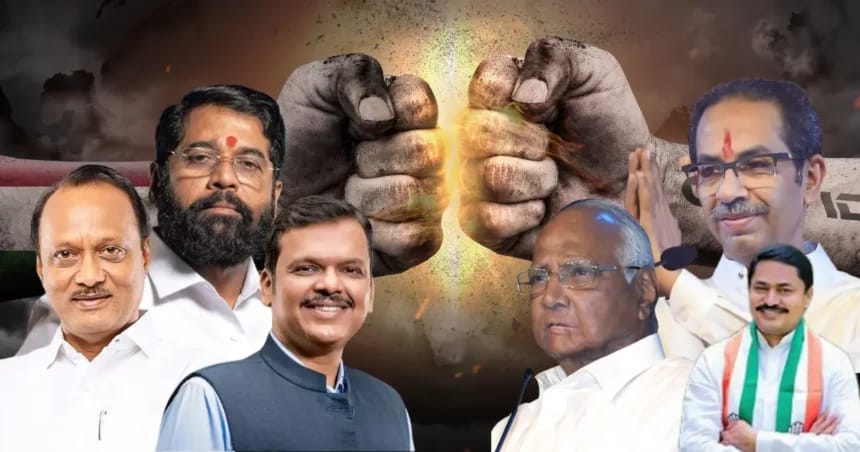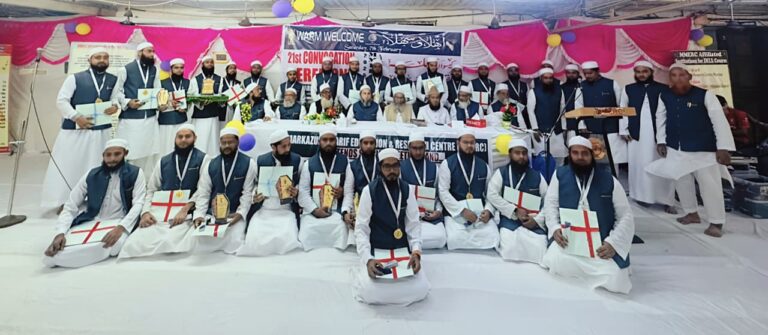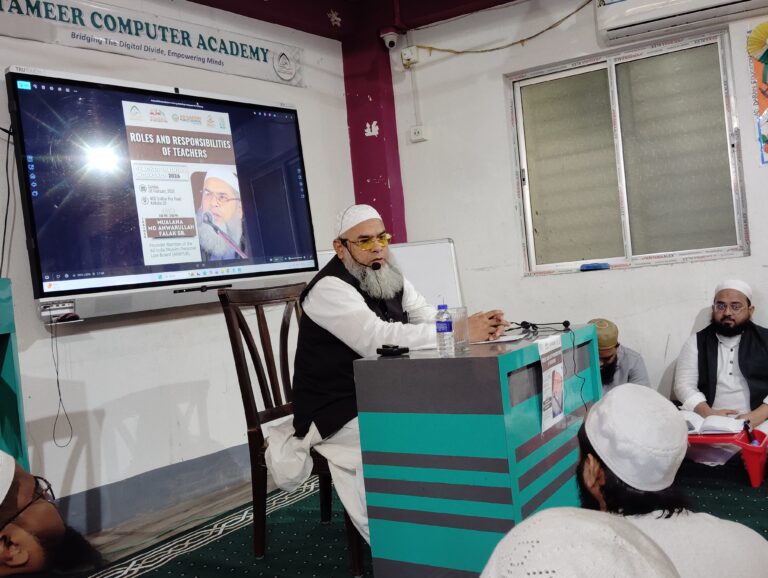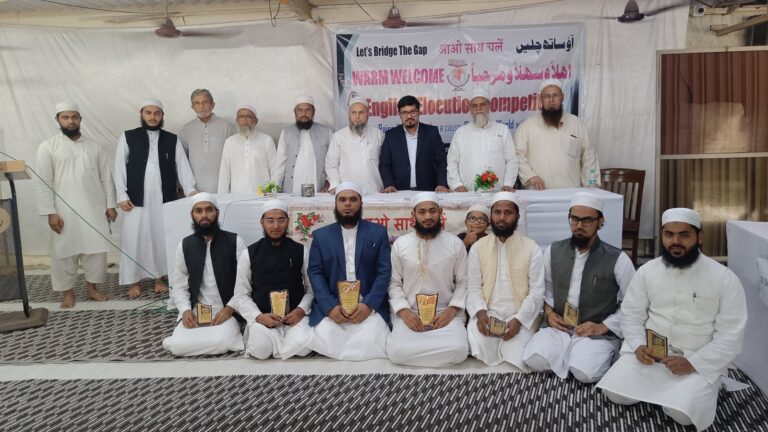
Maharashtra Assembly Election 2024: Who will Win?
Maharashtra Assembly Election 2024: Who will Win?
Mohammad Taukir Rahmani
EC Exclusive
The Maharashtra Assembly election is at its peak, with all political parties actively engaged. While there are only 288 seats in the Maharashtra Assembly, official figures show that after the nomination deadline, a total of 9,229 candidates have entered the field. Various political parties and countless independent candidates have stepped into the political arena to test their fate. This election primarily features a direct contest between two major alliances.
Currently, predicting the outcome is premature. Two prominent regional political parties, Shiv Sena and NCP, are also vigorously showcasing their strength. However, unfortunately, after the last election, these parties faced internal disputes and split into four factions. This division benefited other parties, enabling them to form the government. This time, one faction, led by Sharad Pawar and Uddhav Thackeray, has aligned with the Congress, while the other faction, under Ajit Pawar and Eknath Shinde, has joined forces with the BJP. One of these alliances has been named “Mahavikas Aghadi,” while the other is called “Mahayuti.” Although these alliances appear strong, they are also grappling with internal conflicts and ideological rifts.
The seat distribution process is complete, and a brief overview of it may be of interest here. In the Maharashtra Assembly Elections 2024, the total number of nominations reached 10,900, out of which 9,229 candidates’ nominations were approved. The number of rejected candidates is 1,639, while only 15 candidates have withdrawn from the race.

The situation after the nomination deadline reveals that the Congress Party has fielded candidates in a total of 102 constituencies, while its ally NCP (Sharad Pawar group) has put up candidates in 87 constituencies. Congress’s other ally, Shiv Sena (Uddhav Thackeray group), is contesting from 96 constituencies. Among the other allies, Peasants and Workers Party of India is contesting 6 seats, Marxist 5, Samajwadi Party 2, and the Communist Party of India on only one seat.
On the other side, BJP has fielded its candidates in 148 constituencies, while its ally NCP (Ajit Pawar group) is contesting 52 seats, and another ally, Shiv Sena (Shinde group), has put up 80 candidates. Among their other allies, Jan Surajya Shakti is contesting 2 seats, while Athawale, Rashtriya Yuva Swabhiman Party, and Rajarshi Shahu Vikas Aghadi are each contesting one seat (this data collection is based on Wikipedia data).
Additionally, various smaller parties are enthusiastically participating in this electoral battle. Moreover, a significant number of influential independent candidates could challenge major parties.
The division of NCP and Shiv Sena into two factions each could prove detrimental to both parties. It’s too early to say anything about the post-election scenario, but Mahavikas Aghadi currently appears to have the upper hand, with a high likelihood of victory. However, Mahayuti, too, is competing with a firm grip and confidence. Although the leaders of the two allied groups within Mahayuti are presently aligned with the BJP for temporary gain, due to ideological differences, it’s difficult to predict how long this alliance will last. Political balance could shift at any time, and there is a possibility of government change. For the public, it is challenging to decide which faction of NCP and Shiv Sena to trust and which party will truly work in their interest. It seems that this election will be particularly intriguing and highly competitive. Note that the last date for nomination withdrawal is November 4, voting will take place on November 20, and the results will be announced on November 23.
In the meantime, former Home Minister Anil Deshmukh has released his book, “Diary of a Home Minister” which has caused concerns for Mahayuti, especially BJP and Deputy Chief Minister Devendra Fadnavis. The book levels serious allegations against the Deputy Chief Minister, further complicating the political situation.
You May Also Like
 Breaking News
Breaking NewsIsrael’s confession of Killings of Palestinians! (War in the name of ceasefire, The Board of Peace is a Shield for Israel)
Israel’s confession of Killings of Palestinians! All talk of peace is just a lie...
 Breaking News
Breaking NewsGrand Convocation Ceremony Held at MMERC, Mumbai
Grand Convocation Ceremony Held at MMERC, Mumbai EC News Desk 7 February 2026 Mumbai:...
 Breaking News
Breaking News₹10 Lakh Government Grant Sanctioned under Madrasa Modernisation Scheme
₹10 Lakh Government Grant Sanctioned under Madrasa Modernisation Scheme Applications open until November 13;...
 Breaking News
Breaking NewsAd Darain Education Centre Successfully Conducts 3 Days Teacher Training Workshop
Ad Darain Education Centre Successfully Conducts 3 Days Teacher Training Workshop EC News Desk...
 Breaking News
Breaking News“A Speech Without Audience Engagement and Intellectual Depth Remains Ineffective”_ Suhail Masood
“A Speech Without Audience Engagement and Intellectual Depth Remains Ineffective”_ Suhail Masood EC News...
 Breaking News
Breaking NewsUnder America's War Ambitions! Increasing Western Pressure on Iran and the Changing Dynamics of the Region
Under America's War Ambitions! Increasing Western Pressure on Iran and the Changing Dynamics of...

Comments (0)
Leave a Comment